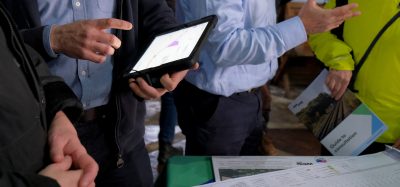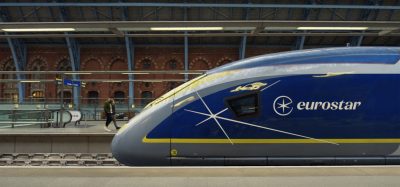An interview with Dick Fearn
Posted: 26 April 2017 | | No comments yet
For Global Railway Review’s Leadership Series, we speak to Dick Fearn, Chair of the new Western Supervisory Board.


The newly-formed Western Route Supervisory Board, which is made up of managing directors of Network Rail, Great Western Railway (GWR) and Heathrow Express, aims to improve passenger experience by combining ‘track and train’ operations and strategizing long-term planning closer together.
The Board is independently chaired by experienced former government rail advisor, Dick Fearn, who works with the Board to help them further align action plans, improve joint planning and drive targets that are centred on improving passenger experience.
For Global Railway Review’s Leadership Series, we spoke to Mr Fearn just after the Board’s first meeting to find out more about himself and the Board’s future plans.
Could you tell us a bit more about yourself and your experience within the industry?
I have been a life-long career railwayman, having first joined British Rail (BR) 44 years ago in 1973 at the age of 18 as a railway traffic student. I was fortunate when becoming a BR employee to also be supported by the company through my further education. I graduated with a BA (Hons) degree in Business Studies from Wolverhampton Polytechnic and later with a MA in Transport Economics from Leeds University.
I progressed my career with BR in operations management roles in the 1970s and 1980s and by the early 1990s I was divisional director of the Thames and Chiltern Division of BR’s Network South East business sector. In that post I was responsible for the implementation of total route modernisation schemes, bringing major service upgrades to both routes.
At the time of the privatisation of the railways in Britain in the mid-1990s, I became the first managing director of the newly-formed South Eastern Train Company, operating commuter train services throughout South East London, Kent and East Sussex. Later I joined Railtrack plc, the predecessor to Network Rail, as its zone director for the North West and subsequently the Midland zone.
In 2003 I left the UK to join Iarnrod Eireann/Irish Rail, the state-owned, national railway of the Irish Republic. I initially joined the company as its Chief Operating Officer and then, in 2006, I was appointed Chief Executive, a post I held until I retired from full time executive roles in 2013. During my 10 years in Ireland I oversaw the nationwide programme of railway modernisation, aimed at significantly increasing the quality, frequency and capacity of rail services throughout the network.
Following my retirement from Irish Rail in 2013, I returned to the South East of England and I have since taken up part-time, non-executive responsibilities in the UK rail industry.
Congratulations on your newly-appointed position as Chair for the Western Route Supervisory Board. What is on the agenda for the Board’s first meeting and what are you and the Board hoping to achieve in the future?
The formation of the new, independently chaired, Western Route Supervisory Board is a joint initiative between Network Rail and the train operating companies on the route. Its aim is to bring about better integration and coordination of effort to improve train service performance. It will do this by aligning strategic priorities on the route and delivering tangible improvements in all-round passenger experience.
The Western Board is the pilot project in advance of the introduction of similar route supervisory boards network-wide. At the outset, the new Board will focus on current performance and service delivery against jointly agreed targets for a number of key performance indicators. At an early stage the Board will also review the short- and medium-term plans associated with the implementation of the major investment programmes in rolling stock replacement and infrastructure upgrades on the Western route, in an effort to start bringing forward benefits to passengers as early as possible.
The Board comprises of managing directors of Network Rail Western Route, GWR, Heathrow Express and Transport Focus. In what way is it important for different members of the railway community to collaborate towards one common goal?
The provision of high quality railway services for passengers and freight customers requires the safe and reliable operation of all the elements that together make up the railway systems; namely the track and structures, the signalling systems, the rolling stock fleets and, most importantly, the people who operate and maintain these systems and assets.
Such systems work best, in my experience, where what is required of them is fully understood by everyone involved and where the teams responsible for each part of the system are working towards a common set of targets and objectives.
However, the latter is not always the case and it will be the responsibility of the new Board to identify and help realign any areas of conflicting objectives between the businesses on the Western route.
In what way will you and the Board be focusing on passenger experience?
In assessing the quality of the passenger railway services being provided, as what really matters most is the experience of the ultimate end customer i.e. the fare-paying passenger. Their experience can be expressed through factors like journey punctuality, the availability of information, comfort and personal security on trains and stations and their overall perception of the value for money offered by the service provided.
To help the new Board understand and appreciate what factors are most influencing passenger perceptions and experience on the Western route at present, the Western manager for Transport Focus (the body representing consumer interests in the rail industry in the UK) is a permanent member of the new Board. Their input will help the Board ensure that its efforts are focussed on those actions that will best help bring about measurable improvements in passenger experience.
Finally, what are your thoughts on intermodality? If ‘train and track’ can join for one common purpose, as with the Western Route Supervisory Board, do you believe different forms of transport could join to do the same thing?
The Western Route Supervisory Board will endeavour to focus on the local needs on the route and empower local decision making within the businesses on the route accordingly. In my experience, the integration of rail services with other public transport modes and the ease of access to rail services for motorists and cyclists for example, is usually best managed at local level.
In that context, the Western board will, through its constituent companies on the route, take note of local needs as expressed by stakeholders and endeavour to ensure that, in the development and enhancement of the Western route and its services, such intermodal integration is taken into account in planning and implementation.






